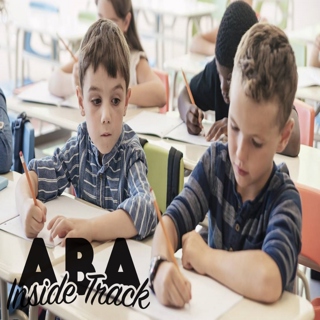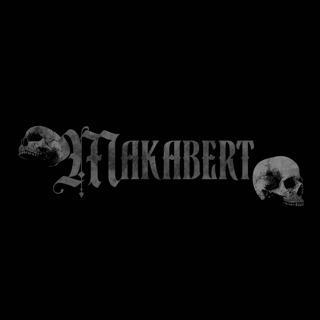
June 2019 Preview
Starting summer off right with journal articles! This month we get back into a discussion of ethical dilemmas with the use of telehealth and telemedicine before inviting Dr. Stacie Bancroft to share some advance chaining variations. Finally, while we all enjoy some time off, a look back into the archives with our classic episode on research related to virtual reality. Bonus: Rob's award-winning writings are only marginally embarrassing to hear about. Articles for June 2019 Episode 88 - Ethics of Telehealth Peterson, S.M., Woodward, J., Crane, J,, & Garner, M. (2009). Teleconsultaiton in school settings: Linking classroom teachers and behavior analysts through web-based technology. Behavior Analysis in Practice,, 2, 32-39. doi: 10.1007/BF03391746 Machalicek, W., Lequia, J., Pinkelman, S., Knowles, C., Raulston, T., Davis, T., & Alresheed, F. (2016). Behavioral teleheatlh consultation with families of children with autism spectrum disorder. Behavioral Interventions, 31, 223-250. doi: 10.1002/bin.1450 Kaplan, B. & Litewka, S. (2008). Ethical challenges of telemedicine and telehealth. Cambridge Quarterly of Healthcare Ethics, 17, 401-416. doi: 10.1017/S0963180108080535 Hall, J.L. & McGraw, D. (2014). For telehealth to succeed, privacy and security risks must be identified and addressed. Health Affairs, 33, 216-221. doi: 10.1377/hlthaff.2013.0997 Episode 89 - Next-Level Chaining w/ Dr. Stacie Bancroft Bancroft, S.L., Weiss, J.S., Libby, M.E., & Ahearn, W.H. (2011). A comparison of procedural variations in teaching behavior chains: Manual guidance, trainer completion, and no completion of untrained steps. Journal of Applied Behavior Analysis, 44, 559-569. doi: 10.1901/jaba.2011.44-559 Slocum, S.K. & Tiger, J.H. (2011). An assessment of the efficiency of and child preference for forward and backward chaining. Journal of Applied Behavior Analysis, 44, 793-805. doi: 10.1901/jaba.2011.44-793 Lambert, J.M., Copeland, B.A., Karp, E.L., Finley, C.I., .Houchins-Juarez, N.J., & Ledford, J.R. (2016). Chaining functional basketball sequences (with embedded conditional discriminations) in an adolescent with autism. Behavior Analysis in Practice, 9, 199-210. doi: 10.1007/s40617-016-0125-0 (REBROADCAST) Episode 25 - Virtual Reality Bouchard, S., Cote, S., St-Jacques, J., Robillard, G., & Renaud, P. (2006). Effectiveness of virtual reality exposure in the treatment of arachnophobia using 3D games. Technology and Health Care, 14, 19-27. Padgett, L.S., Strickland, D., & Coles, C.D. (2006). Case study: Using a virtual reality computer game to teach fire safety skills to children diagnosed with fetal alcohol syndrome. Journal of Pediatric Psychology, 31, 65-70. doi: 10.1093/jpepsy/jsj030 Morina, N., Ijntema, H., Meyerbroker, K., & Emmelkamp, P.M.G. (2015). Can virtual reality exposure therapy gains be generalized to real-life? A meta-analysis of studies applying behavioral assessments. Behaviour Research and Therapy, 74. 18-24. doi: 10.1016/j.brat.2015.08.010
5 Juni 201923min

Episode 87 - High-P/Low-P Sequence
We wind down "It's Gonna Be MAY" with a final topic that none of us have actually conducted research in but we think the field needs to know more about. Remember how we talked about behavioral momentum last week? Remember how "your BCBA friend" referred to the high-p/low-p sequence as an example of behavioral momentum. Well, THEY'RE USING THAT TERM WRONG!!! Find out why and how to avoid ever making that mistake again. Think of this episode as a public service announcement. Articles discussed this episode: Mace, F.C., Hock, M.L., Lalli, J.S., West, B.J., Belfiore, P., Pinter, E., & Brown, D.K. (1988). Behavioral momentum in the treatment of noncompliance. Journal of Applied Behavior Analysis, 21, 123-141. doi: 10.1901/jaba.1988.21-123 Normand, M.P., Kestner, K., & Jessel, J. (2010). An analysis of stimuli that influence compliance during the high-probability instruction sequence. Journal of Applied Behavior Analysis, 43, 735-738. doi; 10.1901/jaba.2010.43-735 Lipschultz, J. & Wilder, D.A. (2017). Recent research on the high-probability instructional sequence: A brief review. Journal of Applied Behavior Analysis, 50, 424-428. doi: 10.1002/jaba.378 Zuluaga, C.A. & Normand, M.P. (2008). An evaluation of the high-probability instruction sequence with and without programmed reinforcement for compliance with high-probability instructions. Journal of Applied Behavior Analysis, 41, 453-457. doi: 10.1901/jaba.2008.41-453 Nevin, J.A. (1996). The momentum of compliance. Journal of Applied Behavior Analysis, 29, 535-547. doi: 10.1901/jaba.1996.29-535 If you're interested in ordering CEs for listening to this episode, click here to go to the store page. You'll need to enter your name, BCBA #, and the two episode secret code words to complete the purchase. Email us at abainsidetrack@gmail.com for further assistance.
29 Maj 20191h 11min

Episode 86 - Behavioral Momentum w/ Dr. Bill Ahearn, Dr. Diana Parry-Cruwys, and Dr. Jackie MacDonald
This week, we welcome returning guest, Dr. Bill Ahearn, to share in the "Gonna Be May" fun to discuss research related to behavioral momentum. And, in a behavior analytic podcast first, we discuss research with not one, not two, but three article authors! Remember, listeners, don't be scared of the behavioral momentum metaphor: Dr. Ahearn has faith in your abilities to understand it. Articles discussed this episode: MacDonald, J.M., Ahearn, W.H., Parry-Cruwys, D., Bancroft, S., & Dube, W.V. (2013). Persistence during extinction: Examining the effects of continuous and intermittent reinforcement on problem behavior. Journal of Applied Behavior Analysis, 46, 333-338. doi: 10.1002/jaba.3 Parry-Cruwys, D.E., Neal, C.M., Ahearn, W.H., Wheeler, E.E., Premchander, R., Loeb, M.B., & Dube, W.V. (2011). Resistance to disruption in a classroom setting. Journal of Applied Behavior Analysis, 44, 363-367. doi: 10.1901/jaba.2011.44-363 Ahearn, W.H., Clark, K.M., Gardenier, N.C., Chung, B.I., & Dube, W.V. (2003). Persistence of stereotypic behavior: Examining the effects of external reinforcers. Journal of Applied Behavior Analysis, 36, 439-448. doi: 10.1901/jaba.2003.36-439 Nevin, J.A., Mandell, C., & Atak, J.R. (1983). The analysis of behavioral momentum. Journal of the Experimental Analysis of Behavior, 39, 49-59. doi: 10.1901/jeab.1983.39-49 Nevin, J.A. (1996). The momentum of compliance. Journal of Applied Behavior Analysis, 29, 535-547. doi: 10.1901/jaba.1996.29-535 If you're interested in ordering CEs for listening to this episode, click here to go to the store page. You'll need to enter your name, BCBA #, and the two episode secret code words to complete the purchase. Email us at abainsidetrack@gmail.com for further assistance.
22 Maj 20191h 26min

Episode 85 - Observational Learning w/ Dr. Jackie MacDonald
The topics for "It's Gonna Be May" keep on a-comin' with Jackie's award-winning work in observational learning research. Sure, we discuss some other articles about how important learning just by watching other people can be, but Jackie spends most of the episode thrilling us with tales of gluing toy boulders into trucks and the Cookie Man. Research sure sounds hard. Articles discussed this episode: MacDonald, J. & Ahearn, W.H. (2015). Teaching observational learning to children with autism. Journal of Applied Behavior Analysis, 48, 800-816. doi: 10.1002/jaba.257 DeQuinzio, J.A. & Taylor, B.A. (2015). Teaching children with autism to discriminate the reinforced and nonreinforced responses of others: Implications for observational learning. Journal of Applied Behavior Analysis, 48, 38-51. doi: 10.1002/jaba.192 Townley-Cochran, D., Leaf, J.B., Taubman, M., Leaf, R., & McEachin, J. (2015). Observational learning for students diagnosed with autism: A review paper. Review Journal of Autism and Developmental Disorders, 2, 262-272. doi: 10.1007/s40489-015-0050-0 If you're interested in ordering CEs for listening to this episode, click here to go to the store page. You'll need to enter your name, BCBA #, and the two episode secret code words to complete the purchase. Email us at abainsidetrack@gmail.com for further assistance.
15 Maj 20191h 6min

Episode 84 - EIBI w/ Dr. Diana Parry-Cruwys
We kick off "It's Gonna be May" with a discussion of Diana's work in early intensive behavior intervention (EIBI) including a discussion of what is and what isn't considered EIBI and how providing effective services passes the educational savings on to you. All that and Diana's favorite research article ever! Articles discussed this episode: MacDonald, R., Parry-Cruwys, D., Dupere, S., & Ahearn, W. (2014). Assessing progress and outcome of early intensive behavioral intervention for toddlers with autism. Research in Developmental Disabilities, 35, 3632-3644. doi: 10.1016/j.ridd.2014.08.036 Schreiman, L., Dawson, G., Stahmer, A.C., Landa, R., Rogers, S.J., McGee, G.G., Kasari, C., Ingersoll, B., Kaiser, A.P., Brinsma, Y., McNerney, E., Wetherby, A., & Halladay, A. (2015). Naturalistic developmental behavioral interventions: Empirically validated treatments for autism spectrum disorder. Journal of Autism and Developmental Disorders, 45, 2411-2428. doi: 10.1007/s10803-015-2407-8 Howard, J.S., Sparkman, C.R., Cohen, H.G., Green, G., & Stanislaw, H. (2005). A comparison of intensive behavior analytic and eclectic treatments for young children with autism. Research in Developmental Disabilities, 26, 359-383. doi: 10.1016/j.ridd.2004.09.005 If you're interested in ordering CEs for listening to this episode, click here to go to the store page. You'll need to enter your name, BCBA #, and the two episode secret code words to complete the purchase. Email us at abainsidetrack@gmail.com for further assistance.
8 Maj 20191h 17min

May 2019 Preview
It's gonna be MAAAAY! Technically, it's May right now. And, in honor of May, all our episodes will be about ME! Well, about Diana and Jackie, to be exact. This month, we'll be discussing research articles actually written by our dynamic doctor duo . There's even an article that they wrote together. Plus, we finally dish out the answer to the question you've all been asking: What's the difference between behavioral momentum and the high-p/low-p sequence? I mean, you might not be asking it overtly, but it's at least a commonly occurring private event. NOTE: Sorry about our busted audio this month. It was either use the poor quality back-up or a loud buzzing sound every 5 seconds. We'll be back to normal next week. Articles for May 2019 EIBI MacDonald, R., Parry-Cruwys, D., Dupere, S., & Ahearn, W. (2014). Assessing progress and outcome of early intensive behavioral intervention for toddlers with autism. Research in Developmental Disabilities, 35, 3632-3644. doi: 10.1016/j.ridd.2014.08.036 Schreiman, L., Dawson, G., Stahmer, A.C., Landa, R., Rogers, S.J., McGee, G.G., Kasari, C., Ingersoll, B., Kaiser, A.P., Brinsma, Y., McNerney, E., Wetherby, A., & Halladay, A. (2015). Naturalistic developmental behavioral interventions: Empirically validated treatments for autism spectrum disorder. Journal of Autism and Developmental Disorders, 45, 2411-2428. doi: 10.1007/s10803-015-2407-8 Howard, J.S., Sparkman, C.R., Cohen, H.G., Green, G., & Stanislaw, H. (2005). A comparison of intensive behavior analytic and eclectic treatments for young children with autism. Research in Developmental Disabilities, 26, 359-383. doi: 10.1016/j.ridd.2004.09.005 Observational Learning MacDonald, J. & Ahearn, W.H. (2015). Teaching observational learning to children with autism. Journal of Applied Behavior Analysis, 48, 800-816. doi: 10.1002/jaba.257 DeQuinzio, J.A. & Taylor, B.A. (2015). Teaching children with autism to discriminate the reinforced and nonreinforced responses of others: Implications for observational learning. Journal of Applied Behavior Analysis, 48, 38-51. doi: 10.1002/jaba.192 Townley-Cochran, D., Leaf, J.B., Taubman, M., Leaf, R., & McEachin, J. (2015). Observational learning for students diagnosed with autism: A review paper. Review Journal of Autism and Developmental Disorders, 2, 262-272. doi: 10.1007/s40489-015-0050-0 Behavioral Momentum MacDonald, J.M., Ahearn, W.H., Parry-Cruwys, D., Bancroft, S., & Dube, W.V. (2013). Persistence during extinction: Examining the effects of continuous and intermittent reinforcement on problem behavior. Journal of Applied Behavior Analysis, 46, 333-338. doi: 10.1002/jaba.3 Parry-Cruwys, D.E., Neal, C.M., Ahearn, W.H., Wheeler, E.E., Premchander, R., Loeb, M.B., & Dube, W.V. (2011). Resistance to disruption in a classroom setting. Journal of Applied Behavior Analysis, 44, 363-367. doi: 10.1901/jaba.2011.44-363 Nevin, J.A., Mandell, C., & Atak, J.R. (1983). The analysis of behavioral momentum. Journal of the Experimental Analysis of Behavior, 39, 49-59. doi: 10.1901/jeab.1983.39-49 Nevin, J.A. (1996). The momentum of compliance. Journal of Applied Behavior Analysis, 29, 535-547. doi: 10.1901/jaba.1996.29-535 High-P/Low-P Sequence Mace, F.C., Hock, M.L., Lalli, J.S., West, B.J., Belfiore, P., Pinter, E., & Brown, D.K. (1988). Behavioral momentum in the treatment of noncompliance. Journal of Applied Behavior Analysis, 21, 123-141. doi: 10.1901/jaba.1988.21-123 Normand, M.P., Kestner, K., & Jessel, J. (2010). An analysis of stimuli that influence compliance during the high-probability instruction sequence. Journal of Applied Behavior Analysis, 43, 735-738. doi; 10.1901/jaba.2010.43-735 Lipschultz, J. & Wilder, D.A. (2017). Recent research on the high-probability instructional sequence: A brief review. Journal of Applied Behavior Analysis, 50, 424-428. doi: 10.1002/jaba.378 Zuluaga, C.A. & Normand, M.P. (2008). An evaluation of the high-probability instruction sequence with and without programmed reinforcement for compliance with high-probability instructions. Journal of Applied Behavior Analysis, 41, 453-457. doi: 10.1901/jaba.2008.41-453 Nevin, J.A. (1996). The momentum of compliance. Journal of Applied Behavior Analysis, 29, 535-547. doi: 10.1901/jaba.1996.29-535
1 Maj 201920min

Episode 83 - Grab Bag VII: Grab Bag vs. Godzilla
From beneath the depths of the sea comes a creature unlike any man has ever known. It destroys cities without care. Our mightiest weapons cannot stop it. It is Godzilla, King of the Monsters! Only Grab Bag, friend to all children of the world, can help us now. Though Grab Bag may be small, he fights with the spirit of a million behavior analytic research articles. Go, Grab Bag! Save the world with your experimental designs and amazing science of human behavior. We believe in you! Don't forget, to celebrate Autism Awareness Month, all throughout April, a portion of proceeds from CE processing fees will be donated to the New England Center for Children, a globally acknowledged school for individuals with autism and a home of research and training in the field of behavior analysis. Pick up some CEs and donate to a worthy cause. It's win-win! Articles discussed this episode: Robinson, E.S., Desrochers, M., & Napolitano, D.A. (2019). Concurrent operant preference assessment to identify social consequences to decrease task latency for adolescents with dual diagnosis. Behavioral Interventions, 34, 52-61. doi: 10.1002/bin.1648 Groves, E.A. & Austin, J.L. (2019). Does the good behavior game evoke negative peer pressure? Analyses in primary and secondary classrooms. Journal of Applied Behavior Analysis, 52, 3-16. doi: 10.1002/jaba.513 Tyner, S., Brewer, A., Helman, M., Leon, Y., Pritchard, J., & Schulnd, M. (2016). Nice doggie! Contact desensitization plue reinforcement decreases dog phobias for children with autism. Behavior Analysis in Practice, 9, 54-57. doi: 10.1007/s40617-016-0113-4 If you're interested in ordering CEs for listening to this episode, click here to go to the store page. You'll need to enter your name, BCBA #, and the two episode secret code words to complete the purchase. Email us at abainsidetrack@gmail.com for further assistance.
24 Apr 20191h 9min

Episode 82 - Interview Skills w/ Dr. Rocio Rosales
At some point in everyone's life, you will be forced to sit through a job interview. This modern rite of passage may well spell the difference between being employed and being flat broke. This week, in our most meta episode ever, we interview Dr. Rocio Rosales on the topic of interview skills. Will a firm handshake, fancy suit, and boastful claim that your biggest weakness is your lack of weaknesses give you the edge you need to succeed? Or is there more to interview skills mastery than a winning smile? Our resume is up to date and scented for that little something extra. Don't forget, to celebrate Autism Awareness Month, all throughout April, a portion of proceeds from CE processing fees will be donated to the New England Center for Children, a globally acknowledged school for individuals with autism and a home of research and training in the field of behavior analysis. Pick up some CEs and donate to a worthy cause. It's win-win! Articles discussed this episode: O'Neill, J. & Rehfeldt, R.A. (2017). Computerized behavioral skills training with selection-based instruction and lag reinforcement schedules for responses to interview questions. Behavior Analysis: Research and Practice, 17, 42-54. doi: 10.1037/bar0000043 Smith, M.J., Ginger, E.J., Wright, K., Wright, M.A., Taylor, J.L., Humm, L.B., Olsen, D.E., Bell, M.D., & Fleming, M.F. (2014). Virtual reality job interview training in adults with autism spectrum disorder. Journal of Autism and Developmental Disorders, 44, 2450-2463. doi: 10.1007/s10803-014-2113-y Stocco, C.S., Thompson, R.H., Hart, J.M., & Soriano, H.L. (2017). Improving the interview skills of college students using behavioral skills training. Journal of Applied Behavior Analysis, 50, 495-510. doi: 10.1002/jaba.385 Rosales, R. & Whitlow, H. (2019). A component analysis of job interview training for young adults with autism spectrum disorder. Behavioral Interventions, 1-16. doi: 10.1002/bin.1658 If you're interested in ordering CEs for listening to this episode, click here to go to the store page. You'll need to enter your name, BCBA #, and the two episode secret code words to complete the purchase. Email us at abainsidetrack@gmail.com for further assistance.
17 Apr 20191h 4min






















